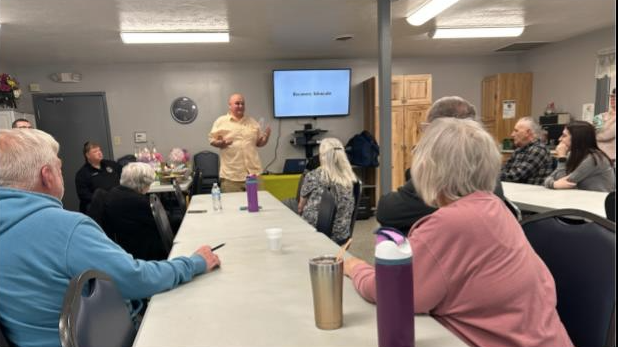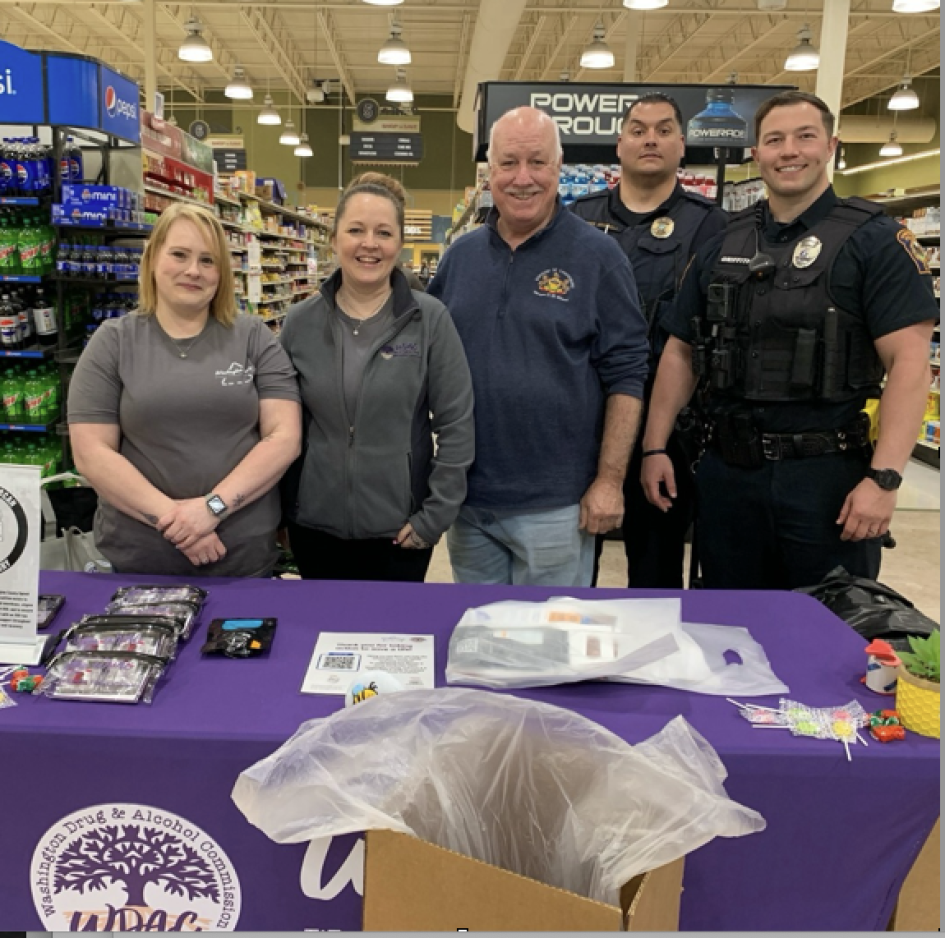Striving for success: WDAC focuses on substance abuse prevention, treatment and recovery
September is National Recovery Month, which focuses on promoting recovery from substance use disorders, highlighting support services, encouraging individuals to get help and celebrating recovery successes.
Those are also the goals of the Washington Drug and Alcohol Commission (WDAC), which is this month’s recipient of the Driven By Hope Award, sponsored by Washington Auto Mall.
Cheryl Andrews has been executive director of WDAC for 14 years since its independence in 2002. Funded primarily by the state Department of Drug and Alcohol Programs, WDAC provides prevention, intervention, treatment, case management, and recovery support services. The commission also runs the Opioid Overdose Coalition to reduce stigma and improve access to treatment.
“We’ve been an independent 501c3 nonprofit since 2002,” says Andrews. “We hold a contract with the state department of drug and alcohol programs. We are considered a single county authority for Washington. Every county in Pennsylvania has one and they’re contracted with the state.”
That means Pennsylvania pushes federal funding to the group as well as state allocations such as money from the opioid lawsuit settlement.
“Primarily our budget is from the Department of Drug and Alcohol Programs. We do have some grants that we hold, but that’s pretty much it.”
Andrews is motivated by her dedicated staff and the success stories of individuals recovering from substance use disorders.
“We provide all things that relate to prevention: intervention, treatment, case management and recovery support for people,” Andrews says. “We provide all those things to individuals that either have a substance use disorder or we work to prevent people from even engaging in drugs or trying drugs.”
WDAC is very community-oriented, and you’ll often see them conducting surveys to help drive their different initiatives.
“We established the Opioid Overdose Coalition, which is made up of community members, all sectors of different agencies within the county from law enforcement to faith-based, to people in recovery to families who lost loved ones,” Andrews adds. They bring groups of people together to work on different priorities and engage and connect them with treatment. “We allow them to help, hold their hand and guide them through the journey of recovery. We wish that all people would have access and that we would reduce stigma around that. So, we have adopted that same type of philosophy within the agency, and we try to be data-driven in the different initiatives that we put into play.”
It often is emotionally exhausting work. What keeps Andrews going personally are the 37 people working at the agency.
“I feel that my perseverance comes through their hard work, dedication and commitment to the job,” she says, “and I feel I need to be a leader who possesses those same qualities. We sharpen each other, but they do the work, and they’re in the daily minutia of heartache, pain and, honestly, of success. I mean, we see it. Not everybody sees the good side of people who make it, and we get to experience that. And even though we may have helped a person multiple times and they relapsed, that type of thing, to see them come out on the other side, no matter how long that takes, and know that we had a part in that, it’s very gratifying.”
Part of the commission’s work is to reduce stigma through social media messaging, and Andrews is quick to acknowledge law enforcement and first responders for the work that they do in reviving people.
“One of the things we really try to do is bring someone in long-term recovery, somebody who may have been saved by the administration of naloxone multiple times and have them tell their story on what was the final straw and why did they get clean,” she says. “A lot of times, it’s because of the kindness that the first responder showed, or just encouragement by a police officer, you need to get help. These are people. It knows no boundary. People come from all walks of life, and we need to recognize the fact that not everybody recovers in the same way, and we need to be gracious in not labeling and stigmatizing.”
Andrews says the community can support their work by donating hygiene products and clothing along with money. You’re also invited to attend any of their community events that focus on helping people understand addiction.
For more information on their services or how to donate or volunteer, please visit www.wdacinc.org.



